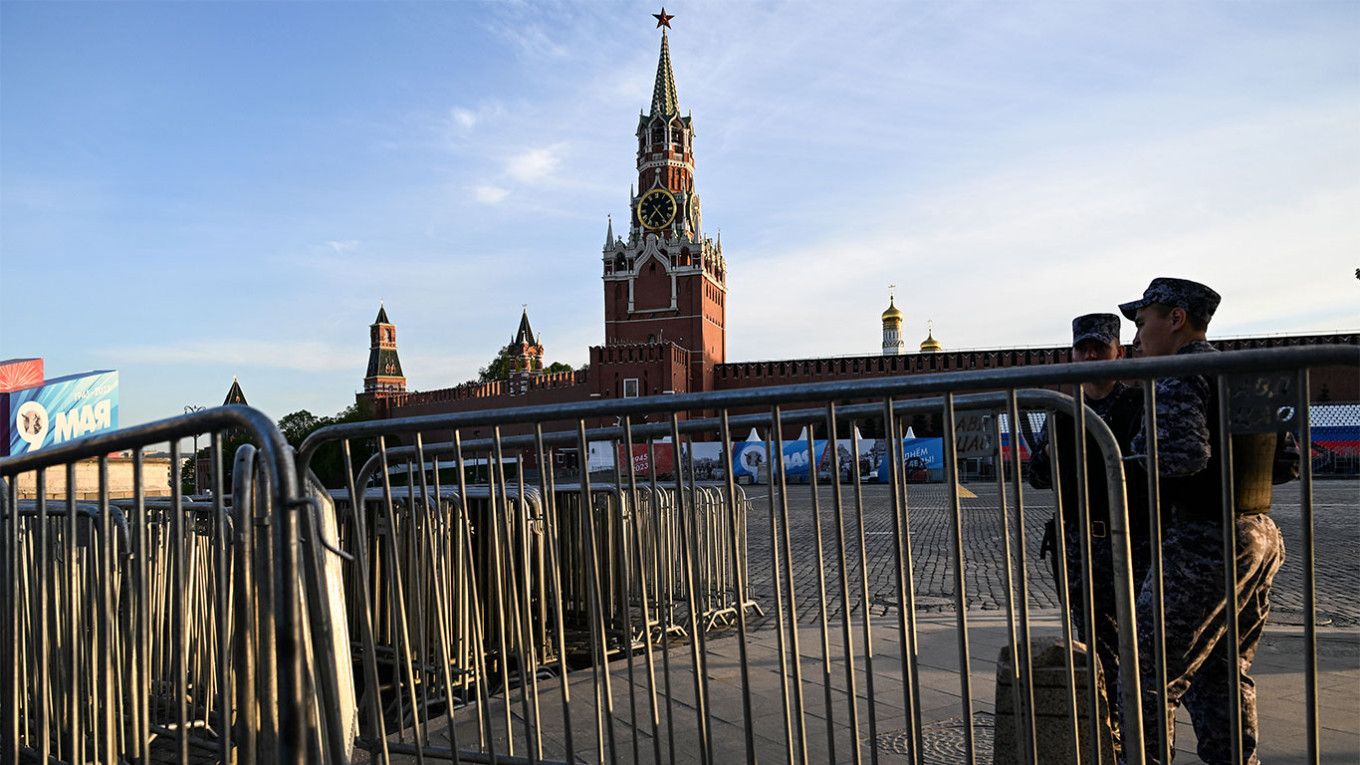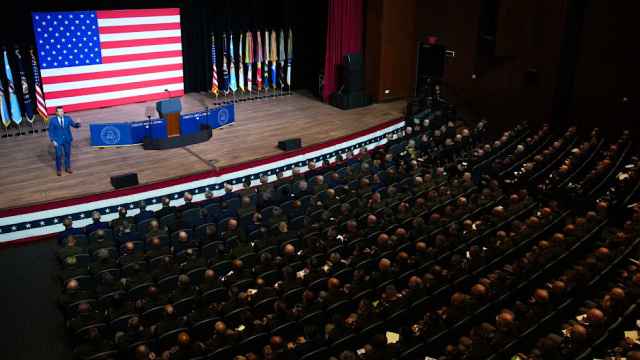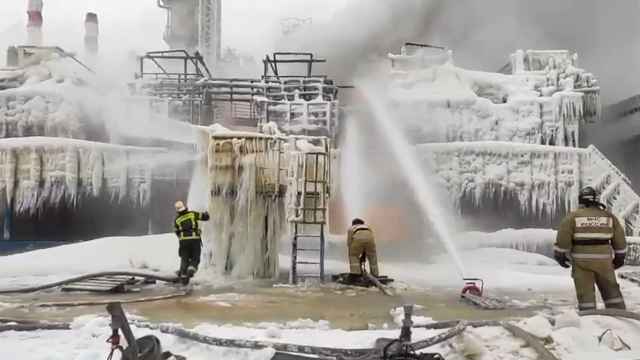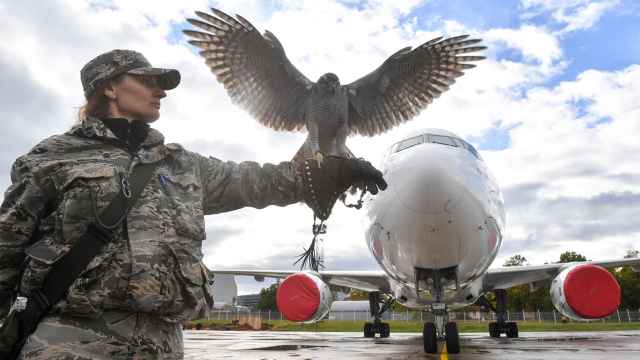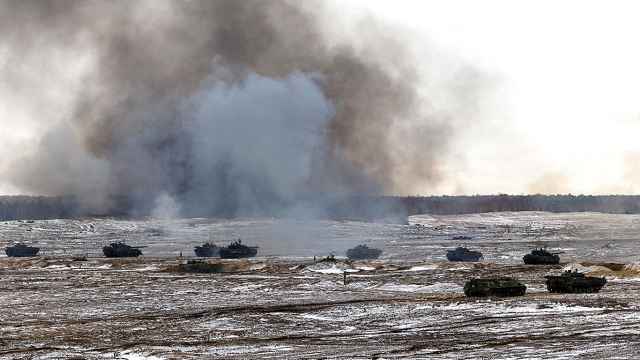Moscow claimed Wednesday that Ukraine attempted to assassinate Russian President Vladimir Putin in an early morning drone attack on the Kremlin.
Dramatic video published online showed at least one drone bursting into flames as it flew into a flagpole on top of the Kremlin’s Senate House, where Putin’s office and apartment are located. Photos taken later during daylight showed what appeared to be burn marks on the roof.
If the drone strike on the Kremlin was ordered by Kyiv, it would not only demonstrate Ukraine’s increased military capabilities but also the Russian government’s failure to keep one of the most heavily protected locations in the country out of harm’s way.
The incident comes as Kyiv prepares to launch its long-anticipated counteroffensive against Russian forces in eastern Ukraine. It also follows strikes on Russian oil refineries, trains and air bases in the lead-up to May 9 when Russia marks the Soviet victory in World War II. This year, celebrations have been canceled in over 20 cities due to security concerns.
Much about Wednesday’s drone strike on the Kremlin remains unclear, but here is what we know so far:
What have Russia and Ukraine said?
Putin’s spokesman Dmitry Peskov immediately accused Ukraine of orchestrating “a planned terrorist act and an attempt on the life of the president.”
However, in the same statement, Peskov admitted that Putin had not been inside the Kremlin at the time of the strike, but, instead, was staying at his residence in Novo-Ogaryovo, some 10 kilometers west of the Russian capital.
Kyiv vehemently denied any involvement in the alleged attack, however.
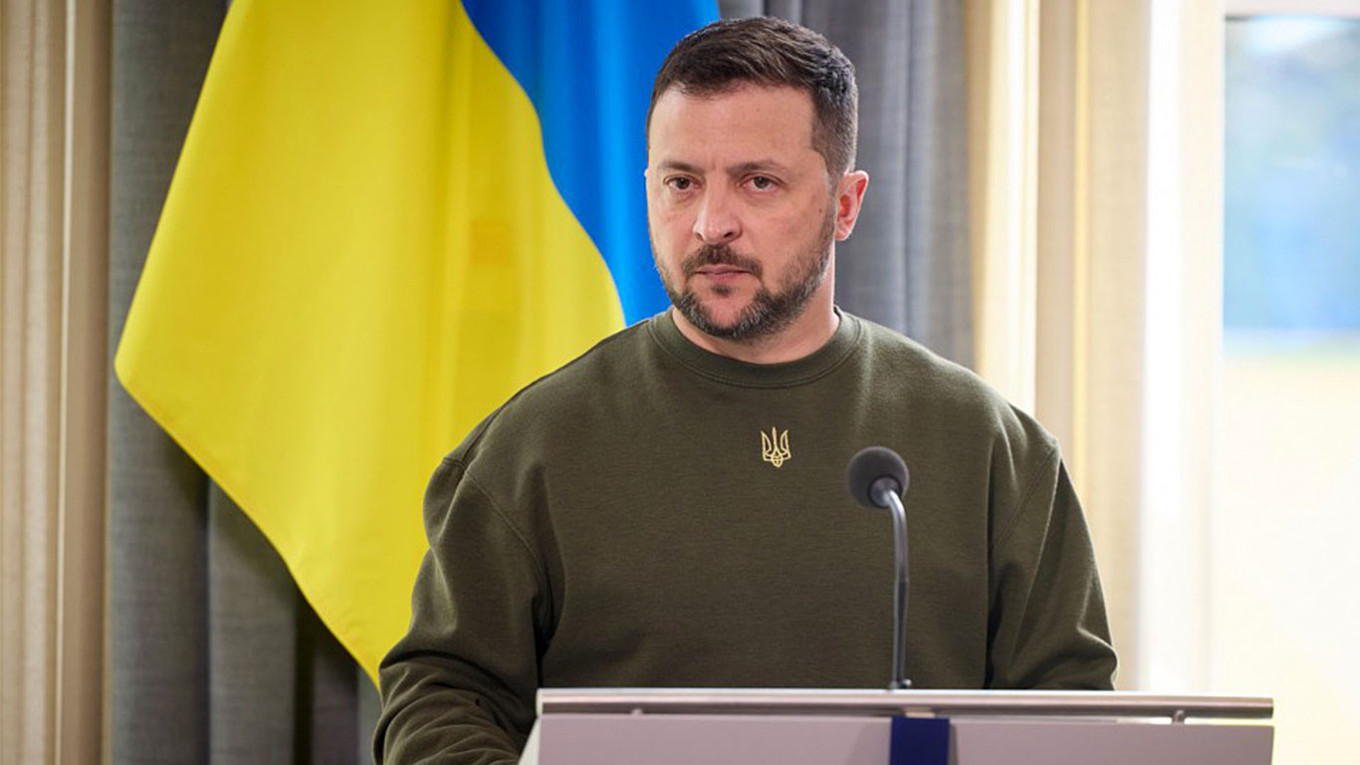
"We didn't attack Putin," Ukrainian President Volodymyr Zelensky said Wednesday. “We fight on our territory, we are defending our villages and cities.”
Moscow ramped up its accusations Thursday by claiming the U.S. was behind the strike.
“We know that often it isn’t even Kyiv that determines the targets, but Washington,” Peskov told journalists. “It’s very important that Washington understands that we know this and understands how dangerous such direct involvement in the conflict is.”
U.S. officials have denied Moscow’s allegations, with White House National Security Council spokesperson John Kirby on Thursday stating that Washington “had nothing to do with” the drone strike. "Peskov is just lying there, pure and simple,” Kirby said.
What explanations are circulating for the strike?
Several competing explanations for the strike have emerged in the subsequent 24 hours, each with its own set of implications and potential consequences.
The two most popular explanations among the independent expert community appear to be that it was an attack by Ukrainian forces, or by Russian partisans.
“I think the political leadership of Ukraine is trying as much as it can to destabilize the domestic political situation in Russia,” political scientist Kirill Shamiev said in an interview with independent media outlet Meduza.
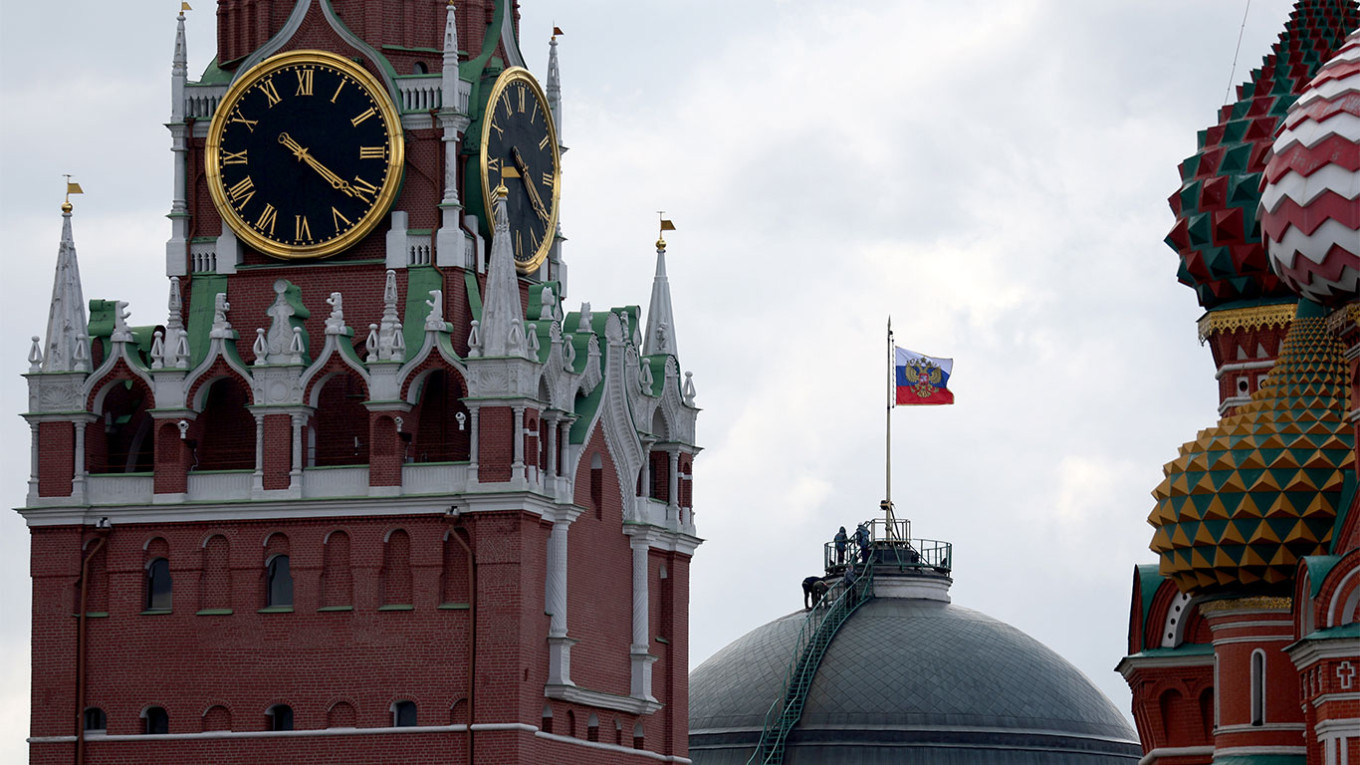
According to Shamiev, the drone strike is a powerful symbolic blow against Putin and creates the impression he is not in control of the security situation in the country.
Russian security analyst Mark Galeotti also said the most likely scenario was that the attack was carried out by the Kremlin’s opponents.
“What the Ukrainians would have wanted to show is that Moscow is not safe, and to do so shortly before 9 May,” Galeotti wrote in an article for British magazine The Spectator on Wednesday, adding that the incident could lead to a purge of top Russian military commanders, including Defense Minister Sergei Shoigu.
Oleg Ignatov, a senior analyst at International Crisis Group, agreed that the strikes were aimed at showing that Russians are just as vulnerable as Ukrainians to attacks and that "nobody, not even in the Kremlin, is safe."
"I'm sure that as long as the war goes on, if Ukraine has the ability to carry out these strikes, they will try to expand them, showing the Russians that the war is near ... they want to push it as close to Moscow as possible," Ignatov told The Moscow Times.
Another explanation given for the attack has been that it was organized by Russia-based partisans who oppose their country’s invasion of Ukraine — although doubts have been cast on whether such a group would have the capability to breach the Kremlin’s defenses.
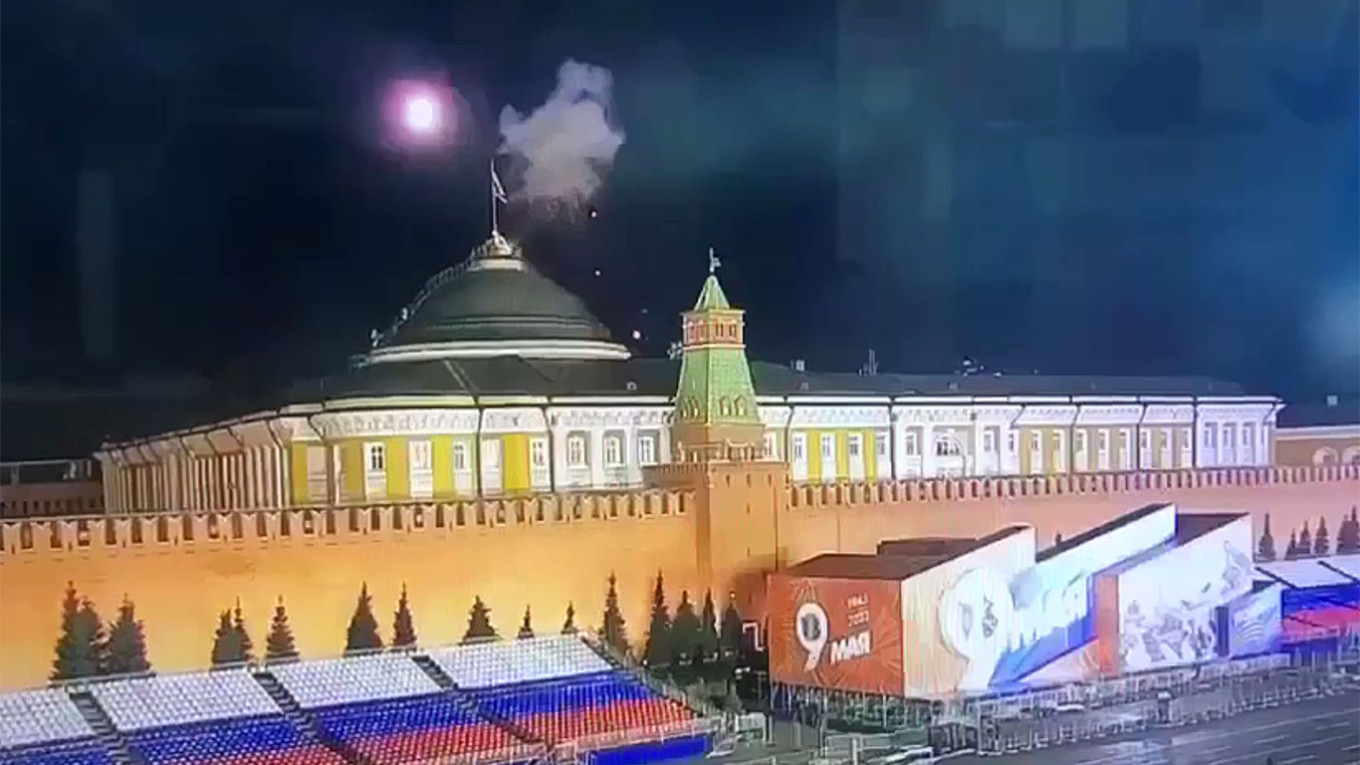
One prominent supporter of this claim is Ilya Ponomaryov, a Kremlin critic and former Russian State Duma deputy who currently lives abroad.
“What Putin is selling to the nation and especially to the elites is the feeling of invulnerability and security. And partisans are ruining both. They are actually saying the war is here and you guys, you personally, are not safe,” Ponomaryov told CNN on Thursday.
Could it have been a false flag operation?
Some have argued the incident was a Russian false flag operation — possibly to create a pretext for more aggressive rhetoric against the West, or to justify a further escalation in Ukraine.
U.S.-based think tank the Institute for the Study of War (ISW) argued the Kremlin’s “coherent and coordinated” response to the strike suggested that the incident was a false flag operation.
Some Ukrainian officials have also suggested the attack was the work of Russian security officers. Ukrainian presidential adviser Mikhaylo Podolyak alleged Wednesday that the attack had been "staged" by Moscow. "Such staged reports by Russia should be considered solely as an attempt to prepare ... for a large-scale terrorist attack on Ukraine," he wrote on Twitter.
However, there is significant evidence that the Kremlin has not sought to use the incident in a way that would align with the false flag theory.
In particular, few details about the incident have been broadcast on Russian state-run TV channels. During its Wednesday evening news broadcast, for example, state-owned Channel One devoted only four minutes of airtime to the strike and did not show footage of the incident.
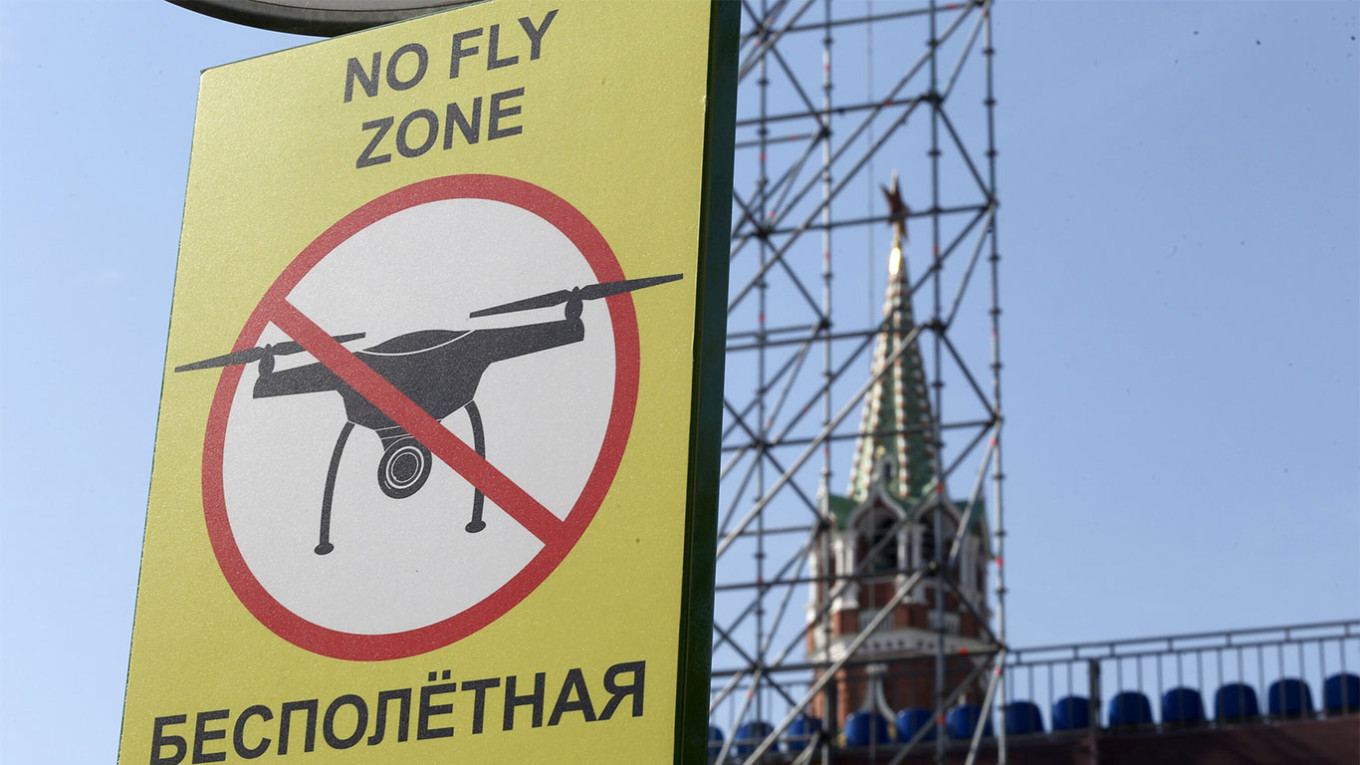
Galeotti ventured that the symbolic importance of the strike is so great that it’s deeply unlikely the Kremlin would have inflicted such a blow on itself.
“It is hard to believe that Putin is so desperate for political capital that he would be willing to pretend that his own air defense forces cannot stop drones from traveling the 450km-plus from the Ukrainian border and hitting the symbolic heart of the Russian state,” he wrote.
Speaking anonymously, an official with close ties to the Russian military told The Moscow Times that "the explosion of two Ukrainian drones over the Kremlin appears to be a major blow to Russian prestige. Someone should be punished for that."
Recalling the scandal that followed East German amateur pilot Matthias Rust being able to land a plane on Red Square in 1987 after flying undetected into Soviet airspace, the official said that despite the security breach being "less sensitive" in that case, "the defense minister and the air defense chief were fired."
"And now we have a war going on. Everybody's extremely tense, and then this happens!"
A Message from The Moscow Times:
Dear readers,
We are facing unprecedented challenges. Russia's Prosecutor General's Office has designated The Moscow Times as an "undesirable" organization, criminalizing our work and putting our staff at risk of prosecution. This follows our earlier unjust labeling as a "foreign agent."
These actions are direct attempts to silence independent journalism in Russia. The authorities claim our work "discredits the decisions of the Russian leadership." We see things differently: we strive to provide accurate, unbiased reporting on Russia.
We, the journalists of The Moscow Times, refuse to be silenced. But to continue our work, we need your help.
Your support, no matter how small, makes a world of difference. If you can, please support us monthly starting from just $2. It's quick to set up, and every contribution makes a significant impact.
By supporting The Moscow Times, you're defending open, independent journalism in the face of repression. Thank you for standing with us.
Remind me later.




